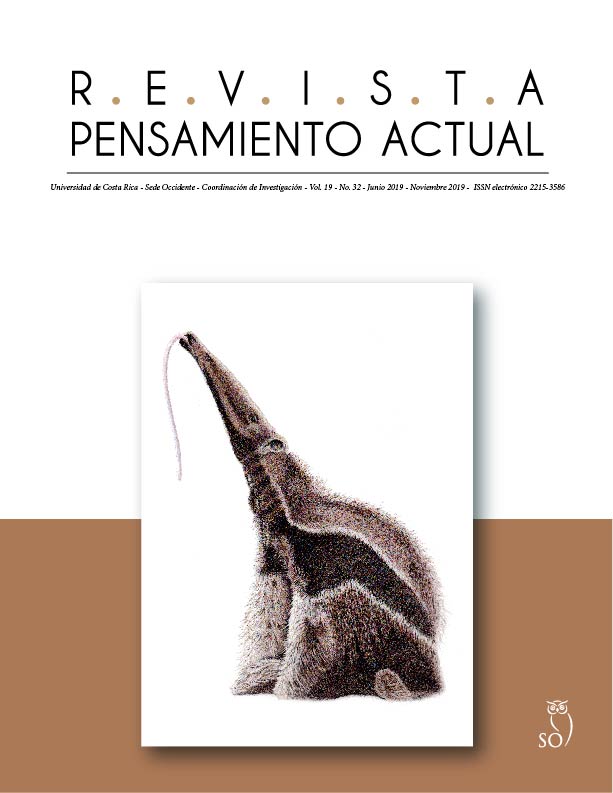Abstract
A detailed examination of the reasons why the famous singer and actor Carlos Gardel represents an emblematic instance in the reception and the dissemination processes of tango in Latin-America makes evident the need to emphasize the media and commercial function that the cultural industry (cinema and radio) performed in the construction and dissemination of the Gardelian myth. Nonetheless, such reasoning is insufficient to understand the ideological impact that the Gardelian figure had on Latin American sociocultural discourse and subjectivity and still does. Based on one of the main theses of Karl Marx related tothe so-called “fetishistic character of merchandise and its secret” (Der Fetischcharacter der Ware und sein Geheimnis), as well as the theoretical notion of the “Star System” created by Edmond Cros and the socio-critic studies, the main objective of this article is focused on the reflection about the specific aesthetic-ideological role that Carlos Gardel has fulfilled as a form of social consciousness, which shapes an ideological representation of the Latin American cultural subject framed in the modernization, economic crisis and cultural industrialization processes during the 1930’s and 1940’s in the Costa Rican urban context.
References
Acuña, G., et al. (1996). Exhibiciones cinematográficas en Costa Rica, 1897-1950. (Memoria de graduación para optar por la licenciatura en Historia). Universidad de Costa Rica.
Aínsa F. (2005). Espacio literario y fronteras de la identidad. San José: Editorial Universidad de Costa Rica.
Botey, A. M. (2011). Costa Rica entre guerras: 1914-1940. Serie Cuadernos de Historia de las Instituciones de Costa Rica, Nº.6. San José: Editorial de la Universidad de Costa Rica.
Cros, E. (2003). El sujeto cultural, sociocrítica y psicoanálisis. Fondo Editorial: Universidad EAFIT.
Cros, E. (2009). La sociocrítica. Editorial Arco Libros. Madrid, España.
Fitzsimons, A. “¿Qué es el “fetichismo de la mercancía”? Un análisis textual de la sección cuarta del capítulo primero de El Capital de Marx. Revista de Economía Crítica, Nº 21, primer semestre 2016.
Marx, K. (1873b). El Capital. Crítica de la Economía Política. Libro Primero. El proceso de producción del capital. Siglo XXI. España. Clásicos del Pensamiento. 2017
Marx, K. (1873a). El Capital. Crítica de la Economía Política. 2ª. Edición. Tomo I, Volumen I. México. Siglo Veintiuno, 1999.
Mondol, M. (2015). Tango, arrabal y modernidad en Costa Rica. Ensayo. Editorial Costa Rica. San José.
Mondol, M. (2018). Voces e intérpretes del tango en Costa Rica. Editorial EUNED.
Stanley, M. (2000). “El populismo en América Latina” Anuario del Departamento de Ciencias de la Comunicación. Volumen 5, año 2000. Universidad Nacional de Rosario, pp. 347-359
Fuentes (periódicos nacionales)
La Prensa Libre, 25 de junio, 1935
Diario de Costa Rica, 27 de julio,1935
Diario de Costa Rica, 30 de junio, 1935
Diario de Costa Rica, 25 de junio, 1935
Diario de Costa Rica, 4 de julio, 1935
La Tribuna, 26 de junio, 1935
La Tribuna, 28 de junio, 1935
La Tribuna, 25 de junio, 1935

